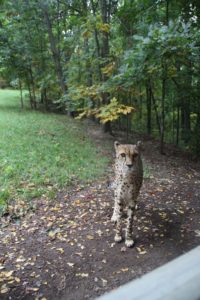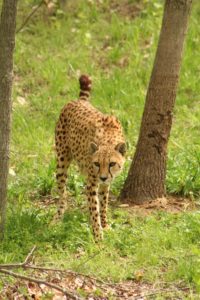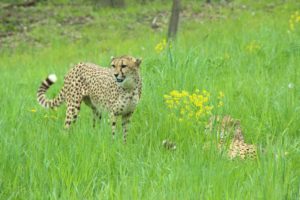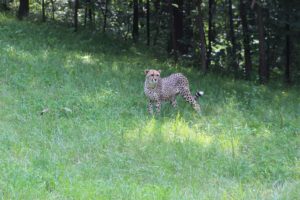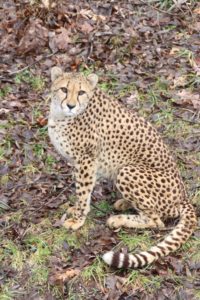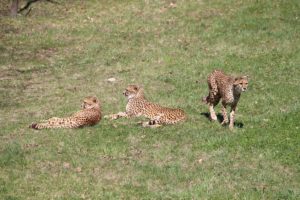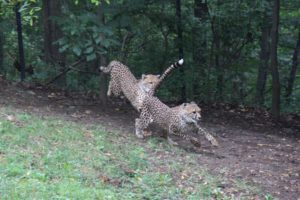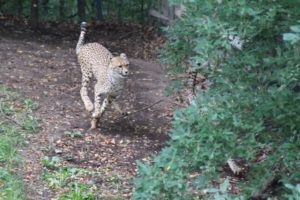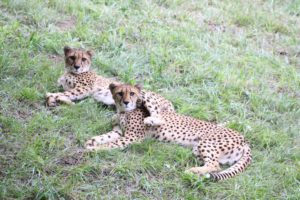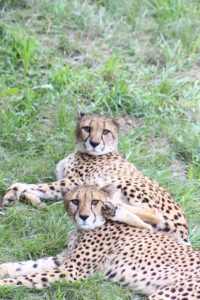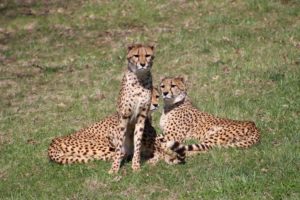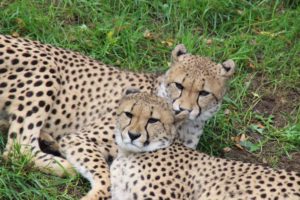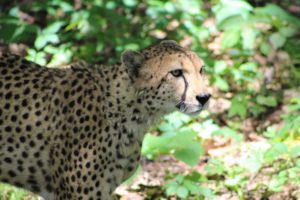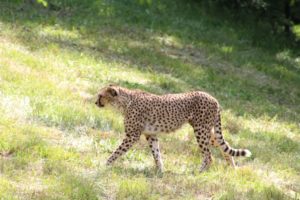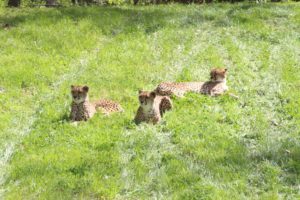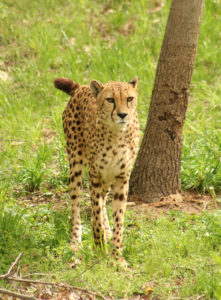CHEETAH
CHEETAHAcinonyx jubatus
Conservation Status: Vulnerable
Habitat loss, prey depletion, human persecution. SSP species.

Learn More
Color:
Coat tawny with small, round black spots; tear stripes on face
Size:
44 – 53 inches; tail 26 –33 inches
Weight:
86 – 143 lbs
Average Lifespan:
10-12 years
Captive Lifespan:
Up to 18 years
Sub-saharan Africa, north Africa, Iran
Savanna, dry forest
Mating:
Polygamous; year round
Gestation/Incubation:
90-98 days
Litter/Clutch Size:
1-6
Mature:
Weaned 3-4 months; dependent on mother until 14-18 months
Medium size antelope, hare, small mammals
Adult females are solitary. Males solitary or in small coalitions with related individuals
1. Scent marking is most important form of communication
2. Cheetahs flourish when lions are removed from the area because lions steal prey and eat cheetah young
3. Fastest land mammal- can run over 60 miles per hour
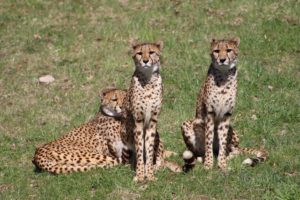 Binder Park Zoo is home to three cheetah sisters: Katie, Madison, and Mohini. They arrived here in 2015 at two years of age, from their place of birth, The National Zoo. The cheetah is the world’s fastest land mammal, reaching speeds of 60 MPH. Our cheetahs at Binder Park Zoo like to display this behavior when stalking addax in the neighboring savanna habitat. The three run into their habitat every morning to watch intently as the savanna animals make their way into their separate habitat. Their favorite day of the week is Sunday, when they receive bones. Our cheetahs, along with all our carnivores, eat a special meat diet formulated especially for zoo carnivores. One of their favorite places to nap is on the shady upper slope of the habitat, so be sure to look up when you visit.
Binder Park Zoo is home to three cheetah sisters: Katie, Madison, and Mohini. They arrived here in 2015 at two years of age, from their place of birth, The National Zoo. The cheetah is the world’s fastest land mammal, reaching speeds of 60 MPH. Our cheetahs at Binder Park Zoo like to display this behavior when stalking addax in the neighboring savanna habitat. The three run into their habitat every morning to watch intently as the savanna animals make their way into their separate habitat. Their favorite day of the week is Sunday, when they receive bones. Our cheetahs, along with all our carnivores, eat a special meat diet formulated especially for zoo carnivores. One of their favorite places to nap is on the shady upper slope of the habitat, so be sure to look up when you visit.

